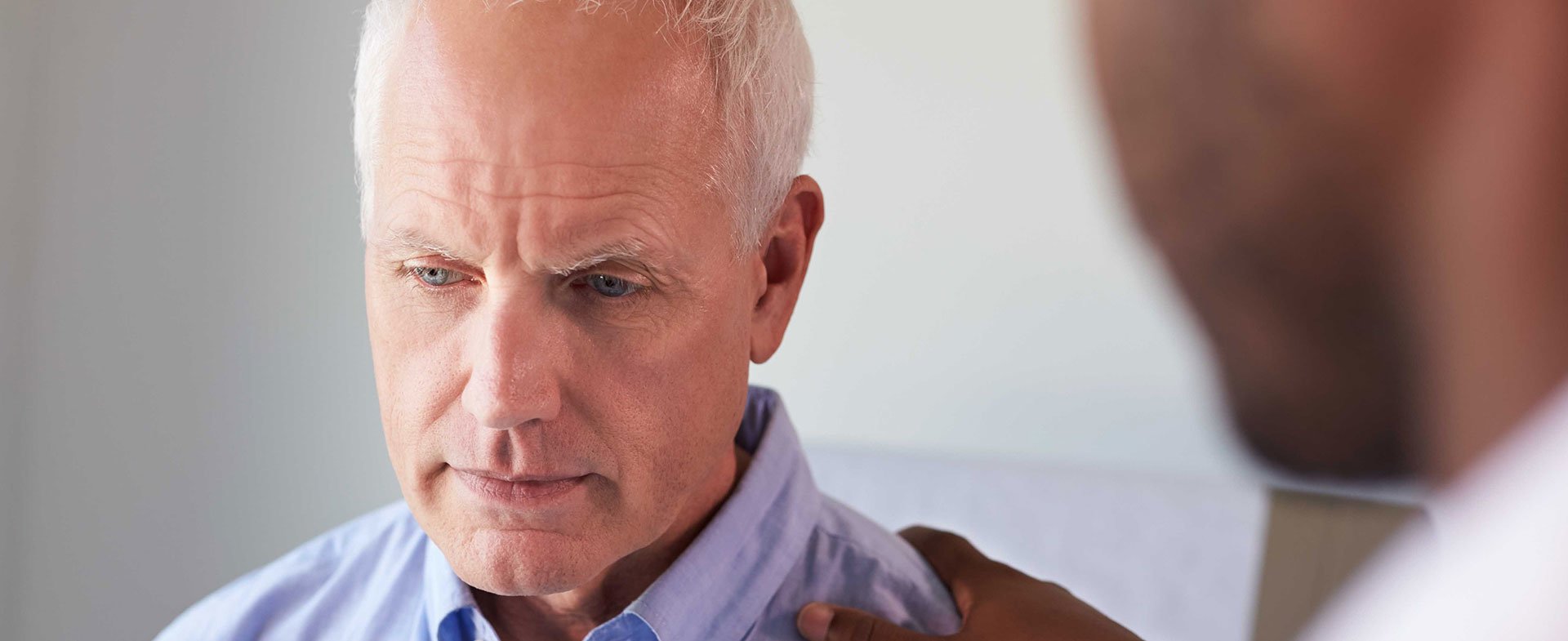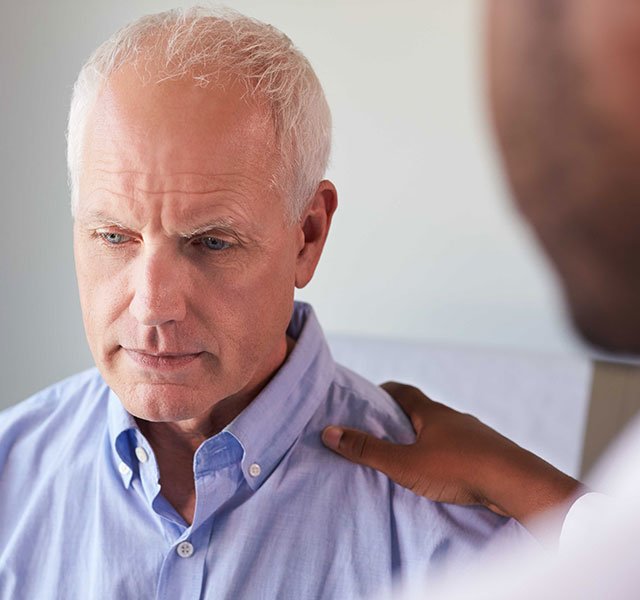Breast cancer is more often associated with women – and for obvious reasons. Many of us know someone – a sister, friend, coworker or other relative who has been diagnosed with breast cancer. In fact, about 1 in 8 U.S. women will develop invasive breast cancer at some point during her lifetime.
But breast cancer can also occur in men. And while it’s much less common in men than women, men are more likely to be diagnosed at a later stage and have a lower chance of survival.
So, how often does breast cancer affect men? And how does a breast cancer diagnosis vary between genders? S. David Nathanson, M.D., a breast cancer specialist at Henry Ford Health, answers common questions about male breast cancer.
Q: What is the likelihood that a man will develop breast cancer?
Dr. Nathanson: It’s estimated that around 2,500 new cases of breast cancer will be diagnosed in men this year. That’s around 1 percent of all breast cancer diagnoses annually.
While women are diagnosed with the majority of breast cancer cases, we’re finding that men tend to have less of a survival rate than women. The principal reason for this is that, through the spread of knowledge about doing self-breast exams and receiving mammograms, we’re discovering cancer in women earlier when tumors are smaller and easier to treat. These screening options really aren’t promoted to men. If men feel a hard lump under the nipple, they are less likely to assume the lump is breast cancer. So when we find breast cancer in men, it’s usually at a routine wellness appointment, and by that time, the tumor is usually larger and more difficult to treat.
Q: Are there any risk factors for developing breast cancer men should be aware of?
Dr. Nathanson: Like women, men can be predisposed if they have an inherited BRCA2 gene mutation from either of their parents. Age is also a factor – most of my male breast cancer patients are at least in their 60s, if not older.
In terms of ethnicity, it has been shown that African-American males have a slightly greater risk of developing breast cancer than white males, but the correlation is not strong. Because breast cancer in men is so uncommon, it’s difficult to see if these types of trends are truly accurate.
Q: How does a breast cancer diagnosis affect men emotionally?
Dr. Nathanson: In my experience, women tend to handle a breast cancer diagnosis more calmly than men. Women are familiar with breast cancer, they likely know someone who has been diagnosed before, and they are more open about their diagnosis. For men, it can be difficult to come to terms with a diagnosis because of the stigma that its breast cancer and something people think of as a woman’s disease. And while men have support resources, they may not be fully open to taking advantage of them.
Like women, men may also struggle with their self-confidence. We treat male breast cancer in the same ways we treat it in women – through chemotherapy, surgery, radiation therapy or some combination of those options. So, men get self-conscious if they lose their hair during chemotherapy. After a mastectomy, some men find it difficult to feel confident in taking their shirt off because they have a scar where the nipple was removed. I have come to learn that men struggle with many of the same issues as women, they often just aren’t as open as women are in discussing them.
If you or a loved one has been diagnosed with breast cancer, there are resources to help you. Visit www.henryford.com/cancer to learn more.
Dr. S. David Nathanson is a breast cancer surgeon who sees patients at Henry Ford Hospital in Detroit and West Bloomfield.



